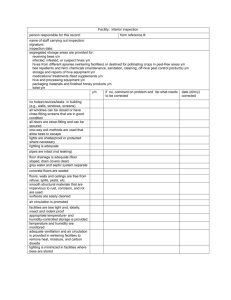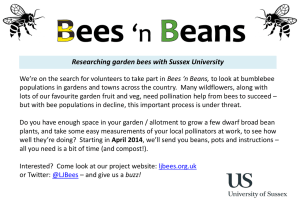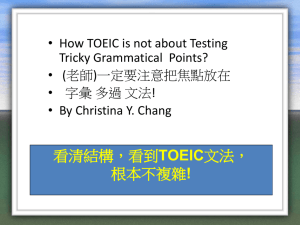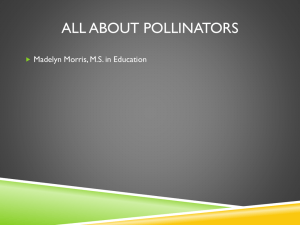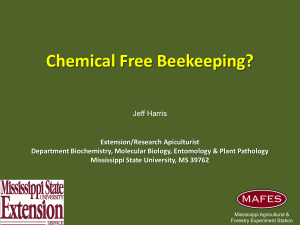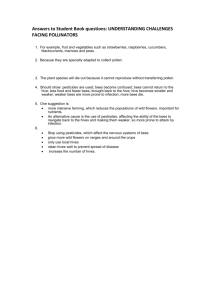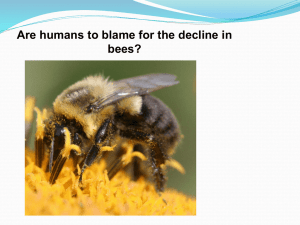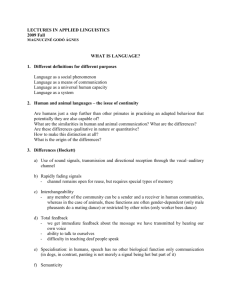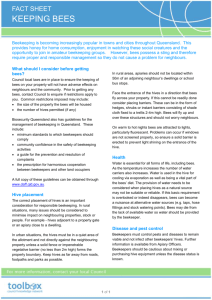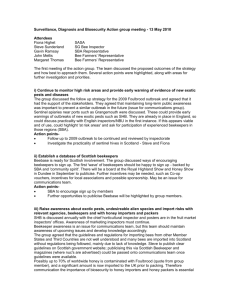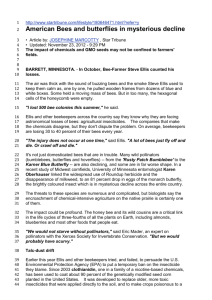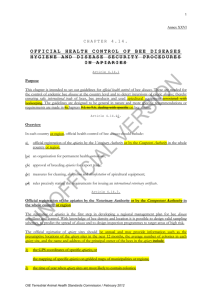nb this scheme is currently under development
advertisement
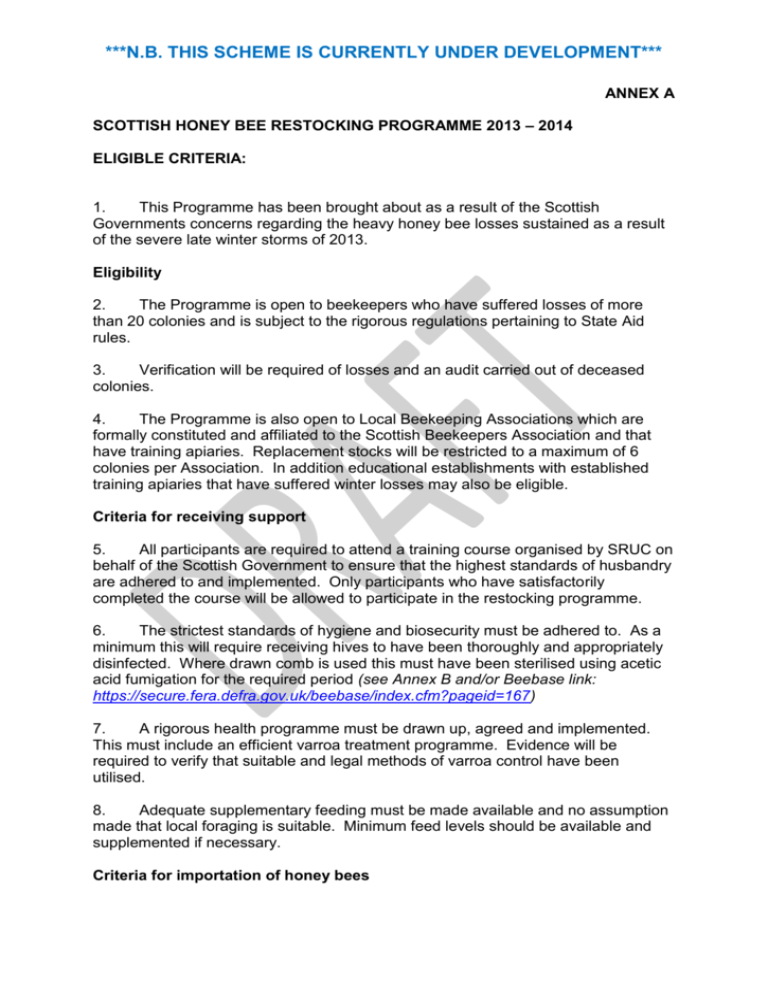
***N.B. THIS SCHEME IS CURRENTLY UNDER DEVELOPMENT*** ANNEX A SCOTTISH HONEY BEE RESTOCKING PROGRAMME 2013 – 2014 ELIGIBLE CRITERIA: 1. This Programme has been brought about as a result of the Scottish Governments concerns regarding the heavy honey bee losses sustained as a result of the severe late winter storms of 2013. Eligibility 2. The Programme is open to beekeepers who have suffered losses of more than 20 colonies and is subject to the rigorous regulations pertaining to State Aid rules. 3. Verification will be required of losses and an audit carried out of deceased colonies. 4. The Programme is also open to Local Beekeeping Associations which are formally constituted and affiliated to the Scottish Beekeepers Association and that have training apiaries. Replacement stocks will be restricted to a maximum of 6 colonies per Association. In addition educational establishments with established training apiaries that have suffered winter losses may also be eligible. Criteria for receiving support 5. All participants are required to attend a training course organised by SRUC on behalf of the Scottish Government to ensure that the highest standards of husbandry are adhered to and implemented. Only participants who have satisfactorily completed the course will be allowed to participate in the restocking programme. 6. The strictest standards of hygiene and biosecurity must be adhered to. As a minimum this will require receiving hives to have been thoroughly and appropriately disinfected. Where drawn comb is used this must have been sterilised using acetic acid fumigation for the required period (see Annex B and/or Beebase link: https://secure.fera.defra.gov.uk/beebase/index.cfm?pageid=167) 7. A rigorous health programme must be drawn up, agreed and implemented. This must include an efficient varroa treatment programme. Evidence will be required to verify that suitable and legal methods of varroa control have been utilised. 8. Adequate supplementary feeding must be made available and no assumption made that local foraging is suitable. Minimum feed levels should be available and supplemented if necessary. Criteria for importation of honey bees ***N.B. THIS SCHEME IS CURRENTLY UNDER DEVELOPMENT*** 9. Scrupulous records must be maintained showing the source of the stock and other necessary details. An example of a suitable record is appended at Annex D. 10. For bees imported into UK the Import Guidance attached must be strictly adhered to. For intra-community trade this means arriving with correct paperwork and all necessary notifications made. On receipt of the bees, records must be updated and maintained and the accompanying Health Certificates retained for inspection. (see Annex C and/or Beebase link: https://secure.fera.defra.gov.uk/beebase/index.cfm?sectionid=47 ) 11. All participants are required to be registered on Beebase and their current apiary details updated. 12. Checks must be made prior to receipt of the bees to ensure that adequate treatment for varroa has been administered. If treatment is not considered satisfactory then fresh treatment must be applied. 13. Receiving apiaries should be restricted exclusively for the imported bees. The imported bees should not be mixed with other bees in the same apiary. 14. Receiving apiaries should have had no EFB or AFB recorded on site in the last 2 years.
